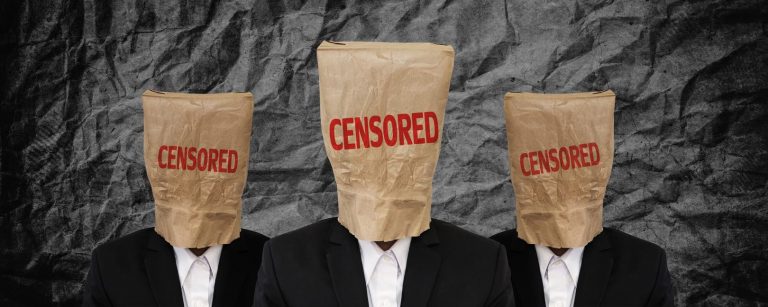Several media outlets are reporting that President Trump’s political landing team at the EPA, which draws heavily from energy industry lobby and pro-drilling think tanks, is prohibiting employees from speaking to the media and Congress. Politico reports that the landing team is “limiting employees’ ability to issue news releases, tweet or otherwise communicate with the outside world.”
As the EPA is molded into a think tank or trade association for the oil and coal industries, new leadership at the agency would be well-advised to reconsider their apparent adoption of Soviet-style censorship tactics. The U.S. is still a free society in which the First Amendment prohibits prior restraints on speech and viewpoint discrimination, and permits government employees to speak as private citizens on matters of public concern. Though new political leadership at the EPA is generally entitled to control official agency communications, it cannot ban employees from making protected disclosures, such as reporting waste, fraud, abuse or a substantial and specific danger to public health or safety to an Inspector General, Congress, the media, or the Office of Special Counsel.
And the anti-gag provisions in the Whistleblower Protection Enhancement Act (WPEA) prohibit agencies from adopting non-disclosure policies that bar lawful whistleblowing. As described in the Senate Report accompanying the WPEA, Section 115 require[s] every nondisclosure policy, form, or agreement of the U.S. Government to contain specific language . . . alert[ing] employees that the nondisclosure policy, form, or agreement does not override employee rights and obligations created by existing statute or Executive Order relating to classified information, communications with Congress, the reporting of violations to an inspector general (IG), or whistleblower protection.” The WPEA also prohibits agencies from implementing or enforcing any nondisclosure policy or agreement that fails to contain a disclaimer about whistleblower rights and protections. See 5 U.S.C. 2302(b)(13).
In addition, the WPEA prohibits retaliation against government scientists who challenge censorship or make disclosures related to the integrity of the scientific process. “Censorship” is broadly defined to include “any effort to distort, misrepresent, or suppress research, analysis, or technical information.” The WPEA protects a disclosure of information that an employee reasonably believes is evidence of censorship related to research, analysis, or technical information that is, or will cause, gross government waste or mismanagement, an abuse of authority, a substantial and specific danger to public health or safety, or any violation of law.
The legislative history of the WPEA explains the purpose of protecting disclosures about censorship of scientific research:
The Committee has heard concerns that federal employees may be discouraged from, or retaliated against for, disclosing evidence of unlawful or otherwise improper censorship of research, analysis, and other technical information related to scientific research. . . . It is essential that Congress and the public receive accurate data and findings from federal researchers and analysts to inform lawmaking and other public policy decisions.
The Trump Administration’s prohibition against disclosures to Congress could also violate the Lloyd-La Follette Act, a 1912 statute that Congress enacted in response to executive orders signed by Presidents Roosevelt and Taft requiring federal employees to get permission from their supervisors prior to making disclosures to Congress. The Act states: “The right of employees, individually or collectively, to petition Congress or a Member of Congress, or to furnish information to either House of Congress, or to a committee or Member thereof, may not be interfered with or denied.”
Though elections have consequences and a new Administration is certainly entitled to set a new policy direction at the EPA and other agencies, the Administration is not entitled to suspend the First Amendment or violate federal whistleblower protection laws. Hopefully new leadership at the EPA will retract its censorship policy and adhere to bedrock American freedoms and values.
To learn more about the Whistleblower Protection Act, click on this outline: Whistleblower Protections Under the Whistleblower Protection Act. Also, the website of the Office of Special Counsel has several resources about whistleblower protections for federal employees.
And most civilian federal employees can bring whistleblower retaliation claims at the OSC. Whistleblowers will be a critical bulwark during this Administration to foster transparency and accountability. Indeed, as Tom Devine, Legal Director of the Government Accountability Project, and I argued in a recently published article, this Administration should view whistleblowers as critical partners and allies in reforming the federal government. See Draining the Swamp Requires Robust Whistleblower Protections and Incentives,
Experienced Washington DC Whistleblower Protection Act Lawyers

- Eric Bachman served as Deputy Special Counsel, Litigation and Legal Affairs, OSC, where he spearheaded an initiative to combat whistleblower retaliation at the Department of Veterans Affairs. During Bachman’s tenure at OSC, the number of favorable actions for whistleblowers increased by over 50% agency-wide.
- Jason Zuckerman served as Senior Legal Advisor to the Special Counsel at OSC, where he worked on implementation of the Whistleblower Protection Enhancement Act and several high-profile investigations.
The firm has represented whistleblowers testifying before the House Financial Services Committee and vigorously opposed efforts to silence whistleblowers. The whistleblower protection lawyers at Zuckerman Law have also helped federal employees combat unlawful gag provisions in agency policies or agreements.
If you are seeking representation in a whistleblower protection case, click here, or call us at 202-262-8959 to schedule a free preliminary consultation.








